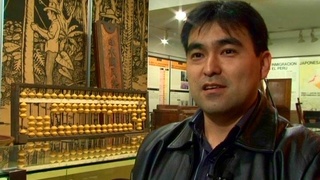Interviews
Mentality of Issei and Nisei
My youth was [a] time of rebellion. I rebelled against everything that I met with, and that’s the only way in which I could feel enough self-assurance and confidence. Others all felt that, you know, that’s silly. Accommodate—do what everybody wants you to do, and then you will be okay. So the whole thing was to study hard, be a nice guy, and eventually you’ll be accepted. And that was their whole philosophy of life. The Issei, particularly, were that way, but I said, Issei are different because they cannot become American citizens anyway. That’s why they would say, yes, accommodate and eventually you’ll be all right. The early Issei were treated very badly, but you see the Nisei sort of accepted it. Their mentality was very similar to the Issei, that is, to be quiet and just accept everything that comes along—do your best and eventually you’ll be okay.
Date: July 1-2, 1998
Location: California, US
Interviewer: Mitchell Maki, Darcie Iki
Contributed by: Watase Media Arts Center, Japanese American National Museum









